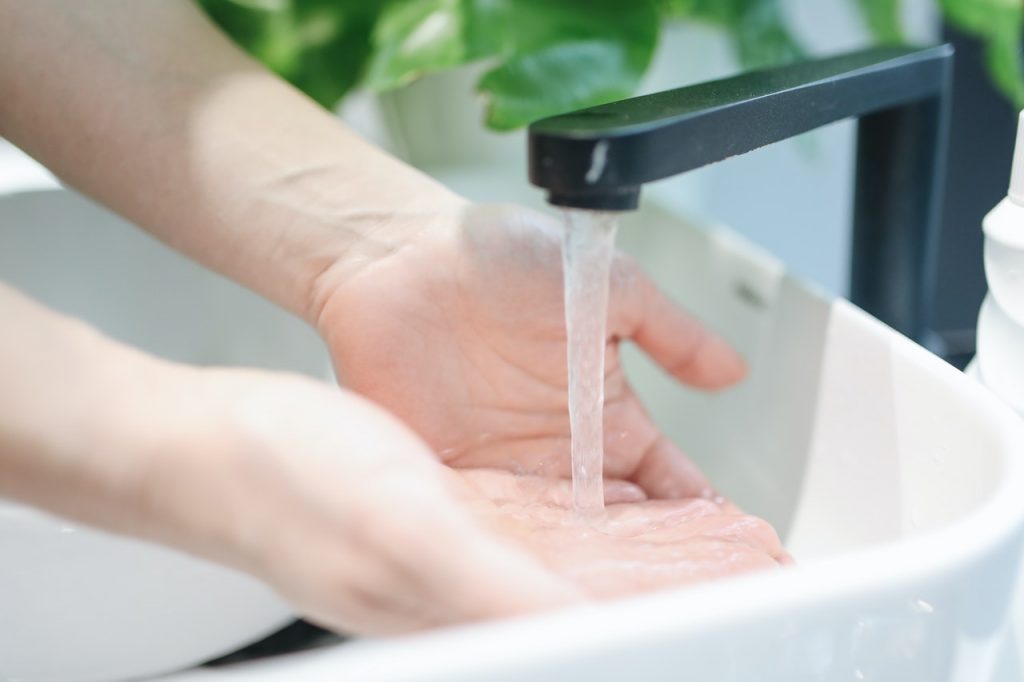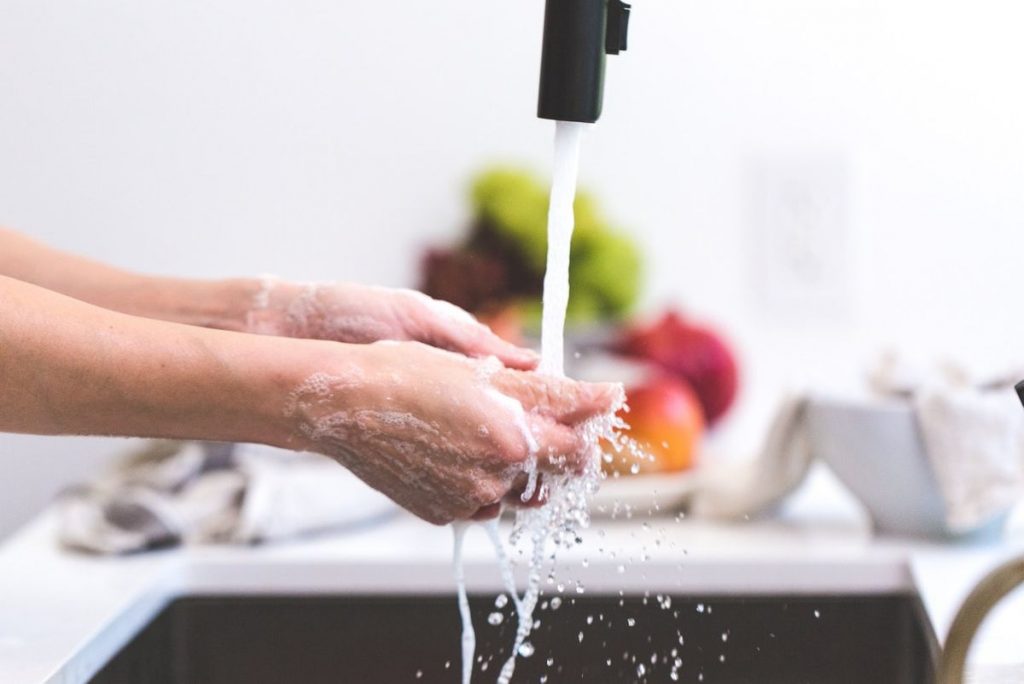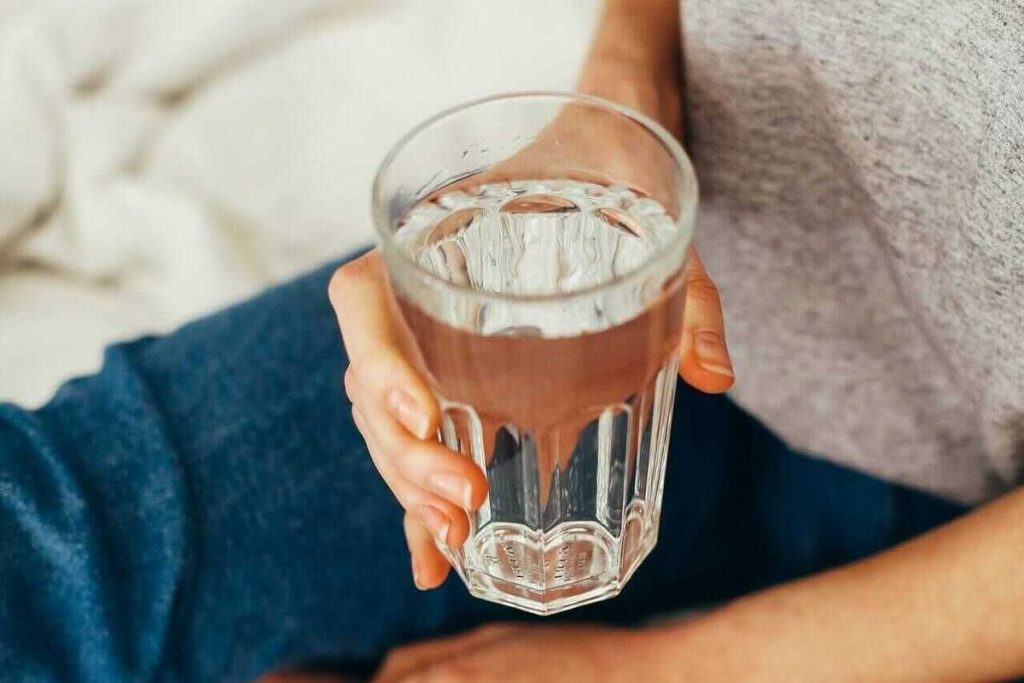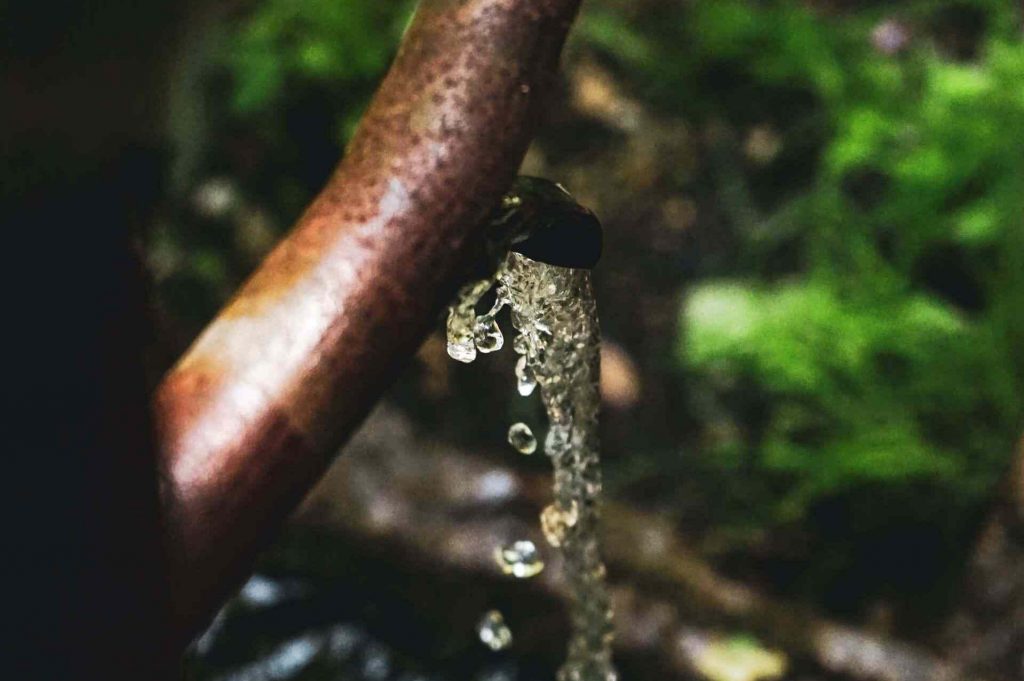If you’ve noticed signs of hard water in your home or if you are planning to install a well on your rural property, you are probably thinking about getting a water softener for your home. If so, you may be wondering if they really work and if they’re really worth the money. You may have even heard a few things that have you scared off, like whether or not water softeners make your water taste salty. There are a lot of myths and misconceptions out there about water softeners, so I am going to go through and clear up a few of those rumors to help ease your mind.
Myth #1: Water softeners make your water taste salty
One of the most common myths about water softeners is that they make your water taste salty. It is easy to understand why people have this misconception. After all, you are adding bags of salt into your water softener, right?
While that part is true, the water that you drink doesn’t come into direct contact with the salt. The softening process takes place inside the resin tank, which is sealed off from the brine tank where the salt is added. The salt is only used once the minerals (which cause your water to be hard) need to be washed off the resin beads and flushed out of the system in a process called regeneration. For the majority of the time that the water softener is operating, the salt isn’t even being used. During regeneration (when the resin beads actually come in contact with salt), the resin tank is sealed off from your water line. While there may be trace amounts of sodium added to your water supply, it is not enough for your taste buds to pick up.
A properly installed water softener system will not make your water taste salty. If your water does taste salty, your water softener may be malfunctioning.
One more thing – you might hear the terms “salt-free water softener” or “saltless water softener” being used online and advertised as an alternative to a salt-based water softener. This is not true! It is a marketing gimmick. Salt-free “water softeners” are actually water conditioners, or water descalers. These machines helps prevent mineral buildup on the walls of your plumbing and appliances, but the water flowing through your home is still hard. Check out my post on salt-based vs. salt-free water softeners to get an in-depth explanation. If you’re on well water and your water is hard, I’d always recommend a standard water softener (that uses proper water softener salt).
Myth #2: The sodium in soft water is unhealthy
The American Heart Association recommends no more than 2300mg of sodium per day, and ideally no more than 1500mg a day for most adults. The average American eats more than 3400mg a day. Sometimes we underestimate the amount of sodium in the foods we eat, or we don’t think about it at all!
Fortunately, the amount of sodium in softened water is almost nothing (see point above) and it certainly does not make up a significant percentage of our daily intake. You can test your water to get your hard water number (measured in gpg or grains per gallon), and after that it is an easy calculation to figure out how much sodium is in your water. In fact, there are online calculators that will even do it for you!
Myth #3: Soft water makes your skin slimy
This is one of the most common myths about water softeners. Soft water does not make your skin feel slimy or cause any other adverse effects. In fact, it is hard water that leaves a film on your skin in the form of soap scum, and many people find that their skin feels softer and smoother after switching to soft water.
One reason you might feel like your skin is slimy after installing a water softener is that you’ve gotten used to using too much soap because of hard water. One of the signs of hard water is your soap and shampoo not lathering properly because of soap scum, so once you’ve fixed the issue with a water softener, you might be able to cut back on how much soap and shampoo you use. Save yourself some money!
Myth #4: Water softeners use a lot of energy
Other than the control system being on standby, water softeners really only use energy during the regeneration cycle, which typically happens in the middle of the night every 5-10 days. The rest of the time, water is just passively flowing through the system without any power being used.
Water softeners also help other appliances save energy. Scale buildup can cause your appliances to run inefficiently and wear out faster. Using a water softener helps to extend the lifespan of your water-using appliances and can help you save money on your electricity bill overall.
Myth #5: Water softeners are expensive to maintain
Of course, buying a water softener is an initial investment. However, if you haven’t realized by now, it will save you quite a bit of money in the long run with how it protects your appliances from the effects of hard water.
Maintaining your water softener itself isn’t a big deal at all – you really only need to buy water softener salt for it and maybe have it serviced on occasion, although you can usually maintain it yourself pretty easily. We buy 4-5 bags of salt at a time (because really – who likes hauling around 44lb bags of salt), and that usually lasts us for most of the year. If you have hard water, you’ll be glad you got yourself a water softener in the long term!
There are a few other things that you can do to extend the life of your water softener. Overall, maintaining your water softener doesn’t require a lot of time or money, and you will be satisfied in feeling like you are getting the most out of your machine.
Myth #6: Salt-free water softeners are a good alternative
In this article , I went over the differences between salt-based water softeners and salt-free “water softeners.” Spoiler alert: salt-free “water softeners” are actually water conditioners or descalers, and the term “salt-free water softener” is a misnomer. These devices simply prevent scale from forming on your plumbing by essentially but do not actually soften the water. If you’re on well water, these devices are essentially useless and you should not waste your money on one!
Myth #7: Water softeners purify water
While water softeners are great for removing hard water minerals from your water, they do not filter out contaminants like bacteria or organic compounds. You may want to look into a water filtration system if you are looking to purify your water.
You may not even need a water filtration system. Most well water is clean and perfectly safe to drink. With this in mind, though, your water transport system (aka plumbing) could get contaminated, and it is always possible for organic material and bacteria to make their way into your water system, making your water smell strange, sometimes even fishy.
It is important to test your water regularly for contaminants, especially if you are on well water. Most municipalities have a health unit that will test your water for you and provide you with a report to determine if it’s safe to drink. Luckily for us, our well water is perfectly fine to drink as it is!
Myth #8: It is healthier to drink soft water
This isn’t as much of a myth as it is a neutral statement: whether you prefer to drink hard water vs. soft water, it doesn’t really make a difference to your overall health. Some people are concerned about the sodium in soft water, but we just learned that the amount of sodium in soft water is such a miniscule amount, if any at all, that it is perfectly fine for most people. On the other hand, some say that the minerals in hard water are not easily absorbed by the body because they are in a form that is different from what we would consume in our diets.
This article states that hard water may have a slight positive effect on the health of its drinkers, but take this with… I’m so sorry about this… a grain of salt.
Either way, one does not have a significant benefit over the other, and this should not be a deciding factor in whether or not you need a water softener for your home.
Conclusion
Are you deciding on whether a water softener is a good investment for your home? Now that I’ve debunked some of the myths and misconceptions about water softeners, I hope to have eased your mind a bit and helped you in your decision on whether or not to get a water softener. We are on well water here and have been using a water softener for quite a few years now since we bought the house, and
If you’re still unsure after reading this post, be sure to check out our related posts below!





